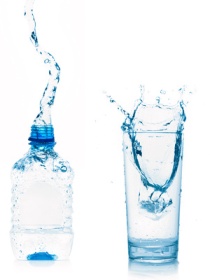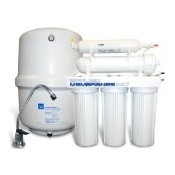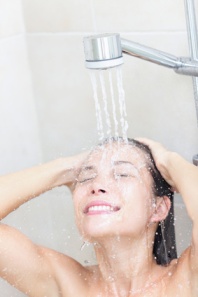Drinking Water Ionized Purification Systems & Alkaline Water CLICK HERE to ORDER
The first thing that Ionized Water does to the body when a person begins drinking it is help flush out the digestive tract, which is the best place for detoxification to start. Alkaline water passes into the intestines “without much difficulty” since stomach acid isn’t produced in response to the water.
Drinking Water Faucet Filters CLICK HERE to ORDER
Low cost drinking water kitchen faucet filters with replaceable filters which keep sediment, chlorine, lead, trace pharmaceuticals, microbial cysts, and other pollutants from reaching your drinking glass.
Pre-Filters for Healthier Drinking Water and Cooking Water CLICK HERE to ORDER
Under sink hidden pre-filters for drinking water and cooking water. Under sink water filter may reduce mercury, lead, cysts, chlorine taste & odor, asbestos, turbidity, sediment, rust and more from with in your water source.
Shower and Bath Water Filters CLICK HERE to ORDER
Shower head water filter cartridge that will filter harmful chlorine and other chemicals from your shower water for up to one year. Chlorine vaporizes in hot shower water and, when inhaled in the lungs, is transferred into the blood stream and may be absorbed through the skin as well. This shower head filter helps eliminate this water hazard.
Sales and Service for Drinking Water Filters & Shower/Bathing Filters.
Installation Expert Specialist for Drinking Water & Shower/Bathing Filter Systems.
Consultant for Healthier Drinking Water and Bathing & Shower Water Filters.
Serving Stuart, Palm City, Jensen Beach, Hobe Sound in Martin County and Jupiter, Tequesta, Palm Beaches of Palm Beach County and Port St Lucie and Hutchinson Island on the Treasure Coast of FL.
You just turn on the faucet and there it is, water.
Have you ever stopped to think about whether or not it is clean?
Your water can come from a lake, a river, a reservoir, or a well. Wherever it comes from, it starts from a watershed. A watershed is the land area that drains into a single body of water (like a lake) or to groundwater (the fresh water found under the Earth’s surface that supplies wells and springs). Everything that happens in the watershed, and from the water source to your tap, affects the quality of your water. In order to have clean water you and your municipality must remove or filter out the harmful chemicals and bacteria.
The following things can make your local drinking water dirty and unsafe:
Pesticides and fertilizers – Americans use 67 million pounds of pesticides to keep our lawns free of weeds and bugs. These chemicals may be washed into our water supply.
Lead pipes or plastic pipes – Lead and plastic chemicals can cause health problems for people, especially babies, children, and pregnant women. Lead gets into drinking water from the pipes that carry the water in some cities and older homes. Plastic chemical pipes are found in newer homes.
Animal or human waste – If animal or human feces gets into the drinking water, you could get very sick from a bio hazard.
Natural events – Floods, hurricanes, earthquakes, or landslides can cause dirt to get into our drinking water.
Littering – Chemicals from batteries, electronics, paints, cleaners, unused medicines, motor oil, and certain light bulbs etc. can get into the watershed.
Spills and accidents – Industrial accidents like oil and chemical spills can pollute our water sources and harm fish and wildlife.
How to protect yourself from water pollution
Filter and/or boil your water if needed. If you know that there are dangerous things in your water like bacteria, lead, or chlorine, you should filter water. A filter will take out some chemicals to make the water cleaner. Read the filter package carefully to see what chemicals it will remove. Boiling water will kill harmful bacteria but not remove things like lead and nitrates.
Get your water tested. If your home uses a well for drinking water have it tested every year by a laboratory. The lab can check to make sure there is no pollution in your well. If you don’t have a well and you use a municipal water source, you can also buy kits to test your water at a local hardware or camping store.
Use cold water for drinking and cooking. Always run your tap on the coldest setting when cooking. Cold water is less likely to have lead in it.
When outdoors don’t drink water directly from a pond, creek, stream, river, or lake. Even though the water looks clean, it’s very likely that bacteria live in the water and chemicals have found their way into the river or lake. Be sure to only drink water from a clean source, like your filtered faucet at home or bottled water. A camping filter or iodine tablets can be used to make outdoor water clean enough to drink if you don’t have clean water with you.
Be part of the solution and not the water problem.
Don’t litter and don’t flush things down the toilet that don’t belong there. Litter, oils and medicines can end up in your drinking water if they are flushed down the toilet.
Recycle your batteries and other harmful trash (like paint). Chemicals from batteries and electronics may pollute lakes and streams. Instead of throwing your batteries out with your household trash, find out how your community recycles batteries and other harmful trash.
Some things, like batteries, should not be thrown into the trash. They should be recycled. Otherwise, the chemicals in the batteries can get into the watershed. Other things that should not be flushed down the toilet, dumped down the drain, or just put out with the regular trash are electronics, paints, cleaners, unused medicines, motor oil, and certain light bulbs.
Find out what your community is doing to protect your water source and get involved. Perhaps your community cleans up a local stream a few times a year. You could help! Check with local leaders to see what you can do to make a difference for our earth.


